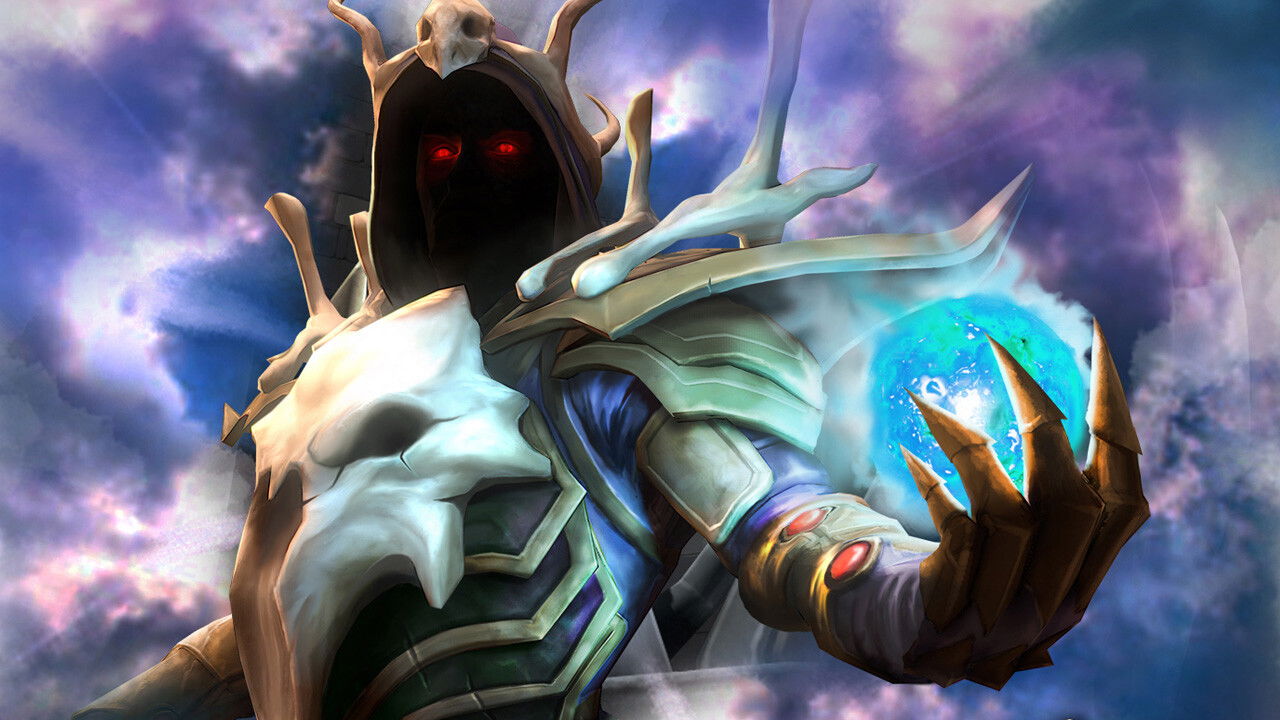Sorcerer King features some of the most refreshingly original mechanics I’ve seen to-date in a 4X turn-based strategy. The Sorcerer King has already conquered the realm of Elemental by the time you begin, and the decision was made—in traditional Bond-villain fashion—to reduce each race to a single city, rather than eradicate them entirely. In an equally unwise decision, the Forge of the Overlord—an incredibly powerful artifact with the ability to craft potions, scrolls, and equipment of legendary potency—was trusted to one of the now enslaved factions (spoiler alert: it’s yours). Oh, and he’s casting a Spell of Making—a spell that, if completed, will convert the living world into a limitless supply of magical energy for him.

In a genre defined by distinct-but-equal factions vying for control of their chosen battlefield, Sorcerer King features a multi-tiered, vastly asymmetrical series of contenders. At the top is the Sorcerer King, who starts the game with nearly the entire map under his control and the ability to portal in armies where he sees fit. His Spell of Making progress is represented by the Doomsday Counter: a bar that is filled or drained based on a combination of time, your decisions in-game, and spells you can cast to hinder progress.
Below him are a series of subservient factions, each segregated by terrain features that are supposed to require the completion of various missions to breach, but more on that in a bit. They’re his puppet slaves and his imposed sanctions prevent them from ever expanding beyond their respective capital cities.
There are also the usual marauding tribes of random hostile armies that will attempt to cause chaos. At the center of it all (or in the opposite corner of the Sorcerer King, as luck would have it), is you. Your challenge is to amass a series of heroes and armies strong enough to challenge the Sorcerer King before he can undo the world, all the while trying to remain unnoticed and in his favour for as long as possible, lest he bring his wrath upon you before you can rival his armies.


Here’s the problem: the game features a lot of depth. Every unit in your army can be equipped and specialized with its own items. Beyond that, you can assume direct control of battles in a tactical battle map, should you not be happy (or confident) with the potential outcome of the auto-resolve feature. Paired with the skills that your heroes earn and unlock through leveling up, the skills you’ll unlock through increasing your Sovereign level (a sort of meta mastery for the player, unique to each game), and all the spells you can research as you play, there is an incredible amount of depth to be controlled and micromanaged—too much.
With all of this, there’s still the need to micromanage your cities and your expansion, juggle unit caps, find and exploit resources, avoid and eliminate roaming barbarians, complete quests, find and craft loot, level-up heroes and armies, capture powerful Crystals and prevent the Sorcerer King from destroying said crystals (while juggling their magical output into a balance of Sovereign XP, mana for spellcasting, and Lore for unlocking new spells), manage your favour with the Sorcerer King, race against the Doomsday Clock, unlock new territories, attempt to coax their hosts to rise up and crush those that resist, and more.

While all of these systems are enjoyable in and of themselves, they’re impossible to balance against each other. I quickly realized that my chosen starting hero of Ranger could buff archers in her army to a point of ridiculousness. With the maximum army size of eleven (all of whom are damage-stacked ranged units that strike before combat even begins), there’s no army on the board that can contest her supremacy.
Pair this with the Sovereign spells that allow you to destroy mountains (those pesky things that “force” you to complete quests to gain access to new territories), or teleport to any area under territorial control (think immediate city-defense from exploring armies), and the game quickly switches from eye-watering challenging to tragic walkover.
The sad reality is that many of the systems in the game can be used to negate many others, and my experience in this otherwise very enjoyable 4X game quickly devolved into a tedious rhythm of frantically attempting to explore and set back the Sorcerer King’s armies as much as possible before inevitably having to warp back my armies for city defense in lieu of hero-less armies’ lack of ability to achieve much of anything, thanks to the limited population cap.


It’s a tragedy that I’m left with these memories of my time with Sorcerer King, as it’s a game that I do very much enjoy, even in spite of its issues. The fiendishly nerdy control over all the little details can be very rewarding; it’s just a shame that I’ve yet to find a middle-ground the game’s balance of power. The incredibly well-received Sins of a Solar Empire franchise showed us that Stardock definitely knows how to create a game with deep and nuanced systems that can remain balanced; it’s a shame, then, that Sorcerer King fails to live up to equal expectations.





